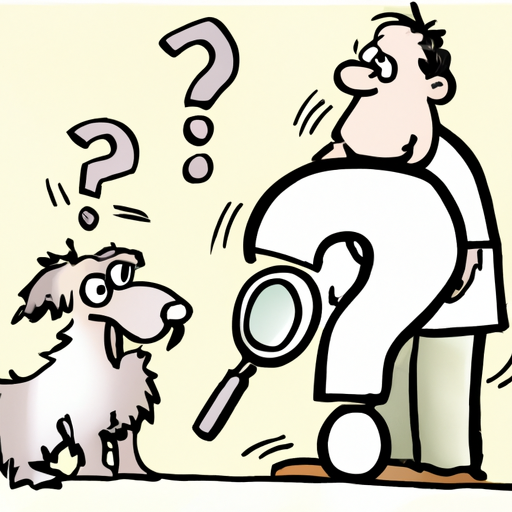Understanding Canine Behavior
Firstly, you need to understand that your dog’s behavior is primarily driven by their sense of smell. Unlike humans, dogs have a powerful olfactory system that allows them to detect scents we cannot. This means that, to your dog, you are a bouquet of fascinating scents. Particularly, the private area tends to have a stronger scent due to pheromones, which dogs find intriguing.
- Dogs explore through their noses: Dogs have up to 300 million olfactory receptors in their noses, compared to about six million in humans. Furthermore, the part of a dog’s brain that is devoted to analyzing smells is proportionally 40 times greater than ours.
- Pheromones: These chemical markers influence canine behavior and reactions. They are found in higher concentrations in the private area.
Dog’s Way of Saying Hello
Secondly, dogs have a different way of greeting than we do. While we might shake hands or wave, dogs prefer to get to know each other by sniffing. This is because sniffing helps them understand if they have met before and gather other information about their health, diet, and emotional state.
- For dogs, sniffing is akin to a handshake
- It’s a social custom in the canine world
Establishing Dominance
Thirdly, when a dog sniffs your private area, it might be a way of establishing dominance or marking their territory. Dogs are pack animals, and they use scent marking to determine who is the leader of the pack.
| Dominance | Submissiveness |
|---|---|
| Sniffing private areas | Allowing themselves to be sniffed |
Health Detection
Remarkably, dogs’ powerful noses can also detect health issues. Some studies have shown that dogs can sniff out diseases like cancer by detecting specific volatile organic compounds produced by cancerous cells.
- Dogs have been trained to detect diseases like cancer and diabetes
- Sniffing private areas can sometimes indicate a health concern
Curbing Unwanted Behavior
Lastly, while this behavior is natural for dogs, it can be embarrassing for you. If you’d like to stop your dog from sniffing private areas, you can try distraction techniques or positive reinforcement training.
- Distraction: Use toys or treats to divert your dog’s attention.
- Training: Reward your dog for desired behavior.
FAQ
Q: Do all dogs sniff private areas?
A: While most dogs do this, not all do. It varies from dog to dog.
Q: Is this behavior harmful to my dog?
A: Generally, no. But if you observe excessive sniffing, it might indicate a health issue.
Q: Can I train my dog to stop this behavior?
A: Yes, with consistent training and positive reinforcement, you can curb this behavior.
Q: Is a dog able to detect diseases by sniffing?
A: Some studies suggest that dogs can detect certain diseases, but more research is required in this area.



